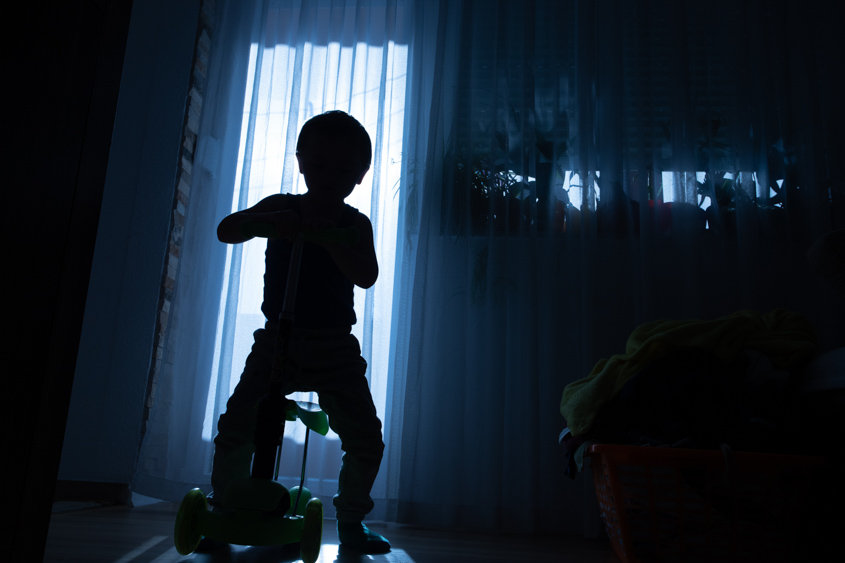For some citizens of the Republic of Srpska, using firecrackers, fireworks and weapons is an indispensable element of celebrating, especially during December and January. However, noise, flashes and even smells may cause many problems to their fellow citizens.
Written by: Vanja Stokić; Video: Ajdin Kamber; Photo: Amel Uzunović – Fotobaza.ba
Sanda Bogdanić is a mother of two autistic children. When they were younger, explosions of firecrackers were so upsetting that they skipped their meals. Over the years, they have become somewhat more resistant to these sounds, but they still get frightened every time.
“They are badly frightened. They react depending on the sound volume. If a firecracker is relatively small, they just twitch and watch. If the pyrotechnics or shooting is loud, they get scared of course. When they were smaller, they would sometimes cry and cover their ears, and their mood would change. The negative experience about pyrotechnics brings back bad memories and they get scared again. Because the sound of firecrackers always comes unexpectedly. If the sound of pyrotechnics is too loud, they sometimes refuse to eat the next meal. They get so upset that they cannot eat”, she remembers.
In her opinion, the solution is quite simple. The ban on selling pyrotechnics.
“I wonder why it’s allowed to sell firecrackers at all. There are many different ways to celebrate. Why all that noise? To be honest, I’d be happy if pyrotechnics were prohibited. I feel sorry for the people selling those, but they could sell something else too”, says Sanda.
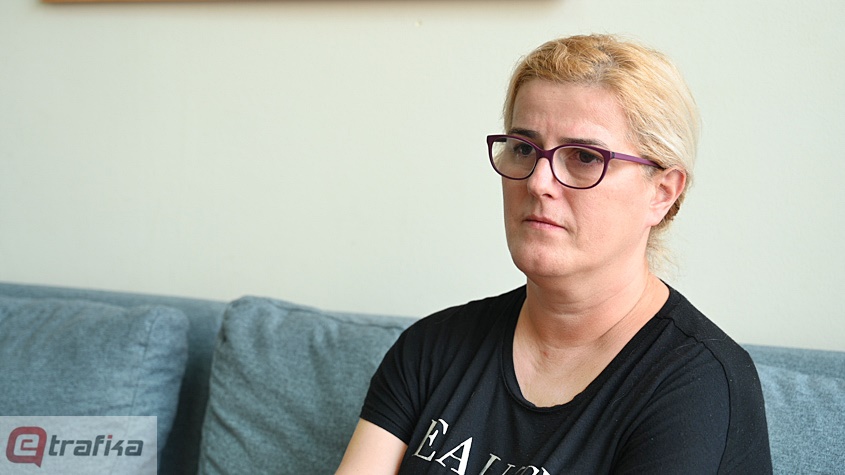
Autistic persons react to noise differently. Many children are intensely sensitive to the sounds of pyrotechnics. These sounds may cause seizures that last even several hours.
“For instance, panic attacks, intense crying, agitation, auto aggressive and even aggressive seizures, after which it is difficult for the parent to calm the child down because most concepts are abstract to children. For example, they don’t understand the New Year celebration, what a firecracker is, where that sound comes from and why it’s so loud. It’s difficult to explain that to the child and calm the child down. We can explain that to ourselves as we understand that this fear is irrational and harmless and that it’s only a firecracker. However, an autistic child doesn’t understand it that way. They only perceive it as an unknown sound coming from the reasons they can’t understand”, says Tijana Milanković, a psychologist of the “Djeca svjetlosti” (Children of the Light) association.
One of the consequences is associating the place the unpleasant sound comes from and then avoiding going to that place again.
“For instance, if this is a schoolyard, the child doesn’t want to go there anymore. Whenever the child comes to the schoolyard, the child remembers the sound because they have an excellent memory. There was a case of a boy who heard a loud sound while crossing the street. He associated the sound with crossing the street. Later on, he had problems for months crossing the street safely, as he would recall that sound every time”, explains Tijana Marković.
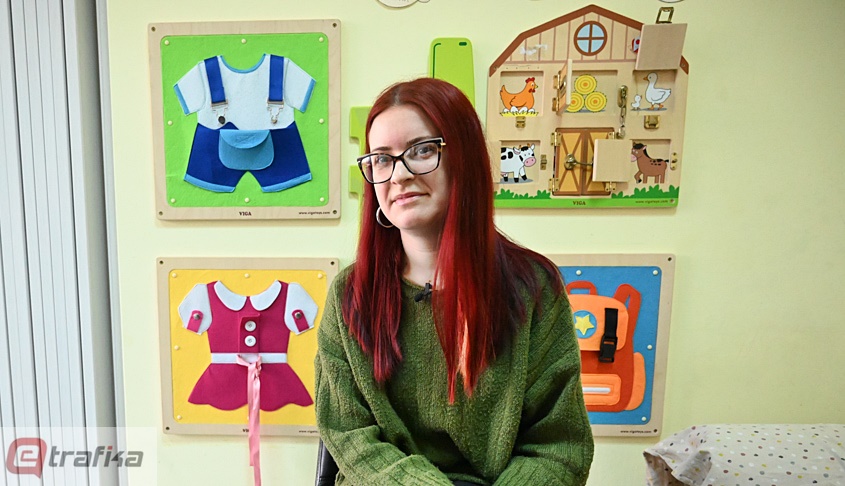
Explosions and gunshots may have an adverse impact on all persons with mental disorders and traumas related to sounds. This is why holidays may be very stressful for persons with post-traumatic stress disorder (PTSD) suffered due to war traumas.
“It’s not just the sound of pyrotechnics but also the intense light of fireworks, flashes of firecrackers and the very smell of pyrotechnics that may be the trigger for some PTSD symptoms”, explains psychologist Nataša Pivašević.
Unpleasant sounds aggravate the symptoms the person already has. This could be nightmares and forced memories of the events that caused the trauma in the first place.
“This leads to more difficult emotional regulation than usual without the sound of pyrotechnics in the surroundings. Due to hindered emotional regulation, the person may distance themselves from others. Therefore, the person socially excludes themselves, i.e., withdraws from close persons. That may further lead to depressive and anxious moods and other discomforting emotions and unpleasant states”, explains Nataša Pivašević.
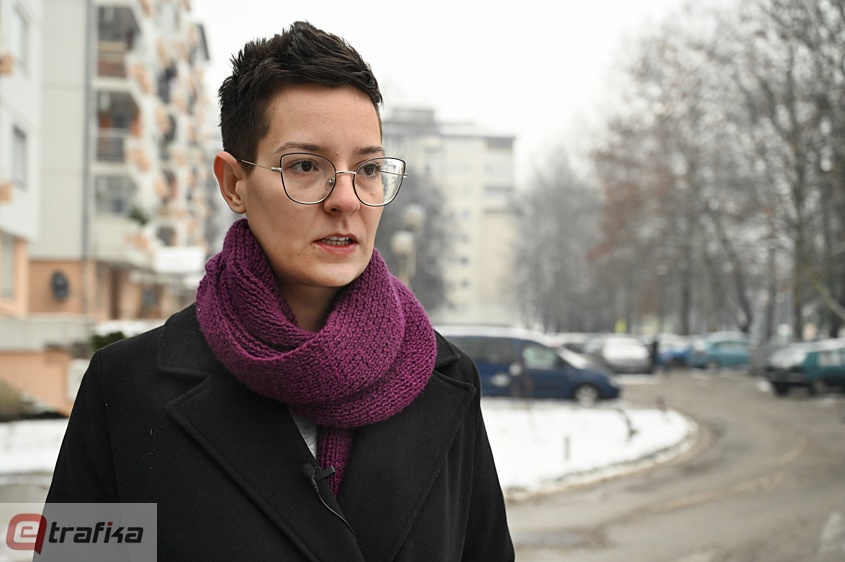
We all fear a loud, sudden sound. By nature, we feel unpleasant in such situations, even though we don’t suffer from mental disorders.
“However, it is easier for us to calm down, regain balance and keep on with our daily routine than those with relatively severe mental disorders”, Nataša Pivašević says.
It is a problem not just for people but for animals as well. The noise produced by gunshots or using pyrotechnics causes fear and stress in animals. The stress is sometimes so severe that animals die from heart attacks.
“There’s a cardiac problem due to stress. Another problem is running away from home. Since dogs aren’t used to such sounds, they mostly run away from home. Their instinct is to hide. In such cases, they mostly die or, being so frightened that they cannot find their way back home, they get lost forever”, says Svjetlana Trifunović from the Animal Protection Association “Vardi”.
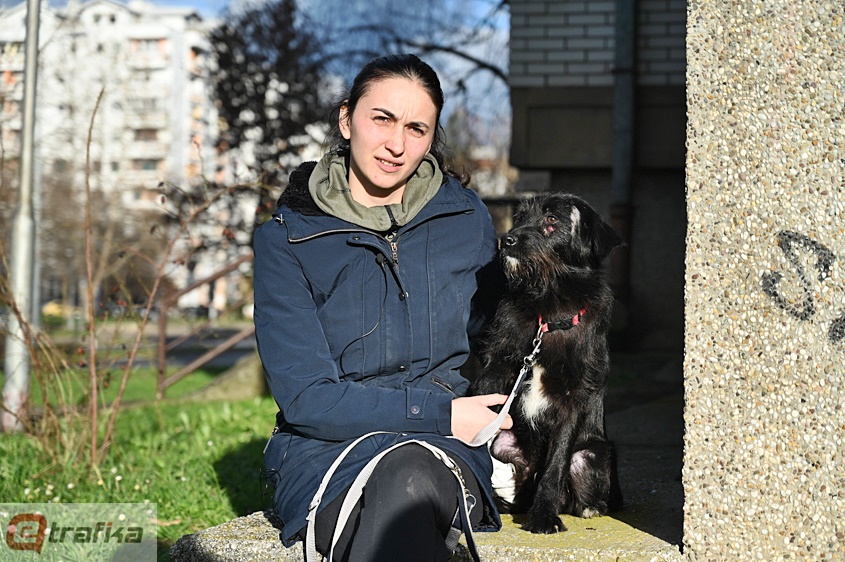
Running away from home is dangerous for both animals and people. Given that these animals are pets, unaccustomed to walking down the street freely, the risk of traffic accidents is higher.
“Given that we don’t have statistics on such cases, in Germany, for instance, only during the night between 31 December and 1 January, i.e., during the New Year celebration, 1400 cats and dogs got lost, which is a large number in only a few hours. Like people, animals are a significant segment of our planet. For that reason, i.e., to preserve the planet and not only animals, pyrotechnics should be prohibited”, says Svjetlana.
Since 2021, firecrackers have been prohibited in neighbouring Croatia. Other pyrotechnics, like fireworks, are allowed only on 31 December and 1 January. However, poor control allowed the black market to flourish.
The initiative to limit the sale of pyrotechnics comes from the political party “Ujedinjena Srpska” (United Srpska). Neven Stanić, a member of the Banja Luka City Parliament, explains that his party has already submitted amendments to the Law on marketing Explosive Substances to the Ministry of the Interior.
“The applicable Law stipulates that Category I pyrotechnics may be sold to children aged 12+ throughout the year. We proposed that the age limit should be shifted to 18 years and that the sale of pyrotechnics should be limited to the period around New Year and holidays – some two or three months. There are Category II pyrotechnics too. They are stronger. The applicable Law prescribes that persons aged 18+ may buy pyrotechnics in the period around New Year. We propose that Category II pyrotechnics may only be sold to pyrotechnical professionals”, Stanić says.
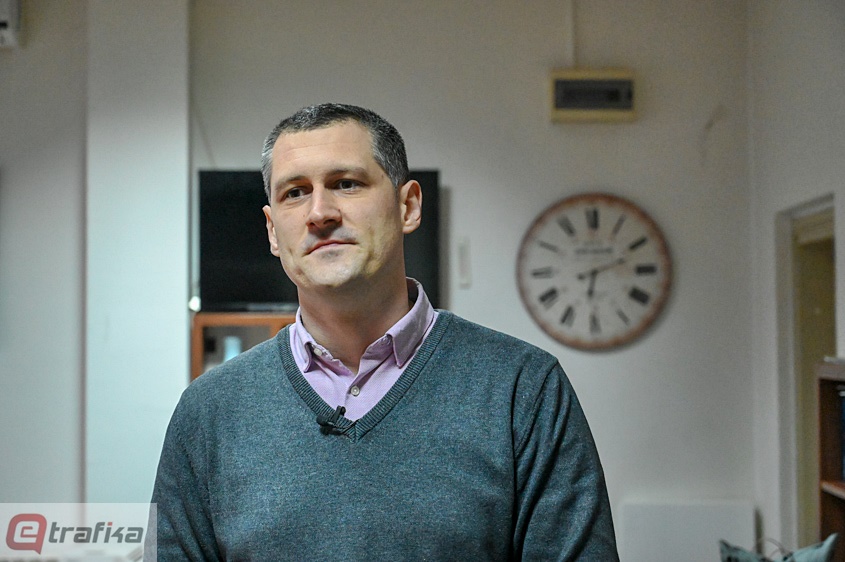
The response from the Ministry of the Interior came in March 2022. They say that, after analysis of the proposed amendments and in line with their plans and programmes, forward the amendments to the National Assembly for decision. That has not happened yet.
“If that does not happen in the forthcoming period, we will send the request again. It isn’t a problem for us to send the request again and urge the National Assembly to consider and decide on it”, Stanić says.



